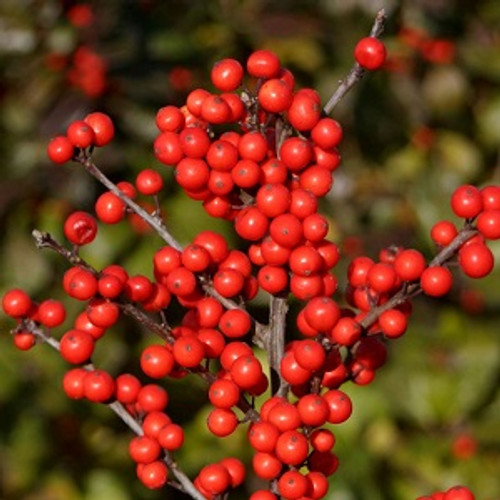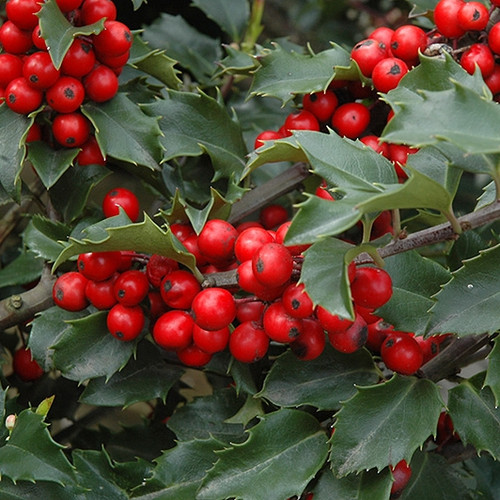| Ilex verticillata 'Spravy' | USDA Zone: 3-9 |
Berry Heavy® Winterberry Holly produces copious amounts of bright red berries to be enjoyed in fall and winter. Brighten up the winter landscape with a mass planting! The berries can also be cut for use in floral arrangements. For berries on this female selection, a male pollinator. Mr. Poppins® Winterberry Holly or Southern Gentleman would be suggested variety. Fruit is not edible.
Top reasons to grow Berry Heavy® Winterberry Holly:
- Sets more berries than conventional winterberry hollies
- Grows well in tough conditions, like shade and wet soil
- Adds color and interest to the winter landscape
- Attracts wildlife
Attracts Pollinators, Birds
Produces Ornamental Berries
Winter Interest
Deer resistant
Common Name: Holly - Winterberry
|
Key Feature
|
Light Needs | Landscape Uses |
 |
 |
|
|
|
|
| More About Berry Heavy® Winterberry Holly |
| Height: 6-8 ft |
Spread: 6-8 ft |
Flower Colour: White Shades |
|
A good addition to mixed borders or cutting gardens. Beautiful for cuts to create holiday displays. Good in groupings and mass plantings, perennial and shrub borders, as a specimen, screen, or hedge. Good show in winter gardens. This plant tolerates wet conditions and may be used in bioswales and rain gardens. One male plant will pollinate up to 5 female plants; plant within 50' of one another to assure good pollination. It is best to avoid pruning winterberry hollies, except to remove whole branches for arrangements and decorating. Regular maintenance pruning or cutting back will impact the number of flowers and the quantity of fruit that the plant sets. Little pruning should be required, though very old branches can be removed in early spring if they are no longer producing vigorous growth. Note that when grown in a container, it may not perform exactly as indicated on the tag - this is to be expected. Also note that when growing plants in outdoor containers and baskets, they may require more frequent waterings than they would in the yard or garden. Be aware that in our climate, most plants cannot be expected to survive the winter if left in containers outdoors, and this plant is no exception. NOTE: Some flowers and plants may be harmful or poisonous to people or pets if touched or ingested. If you require more information before placing an order, please let us know in advance. |











